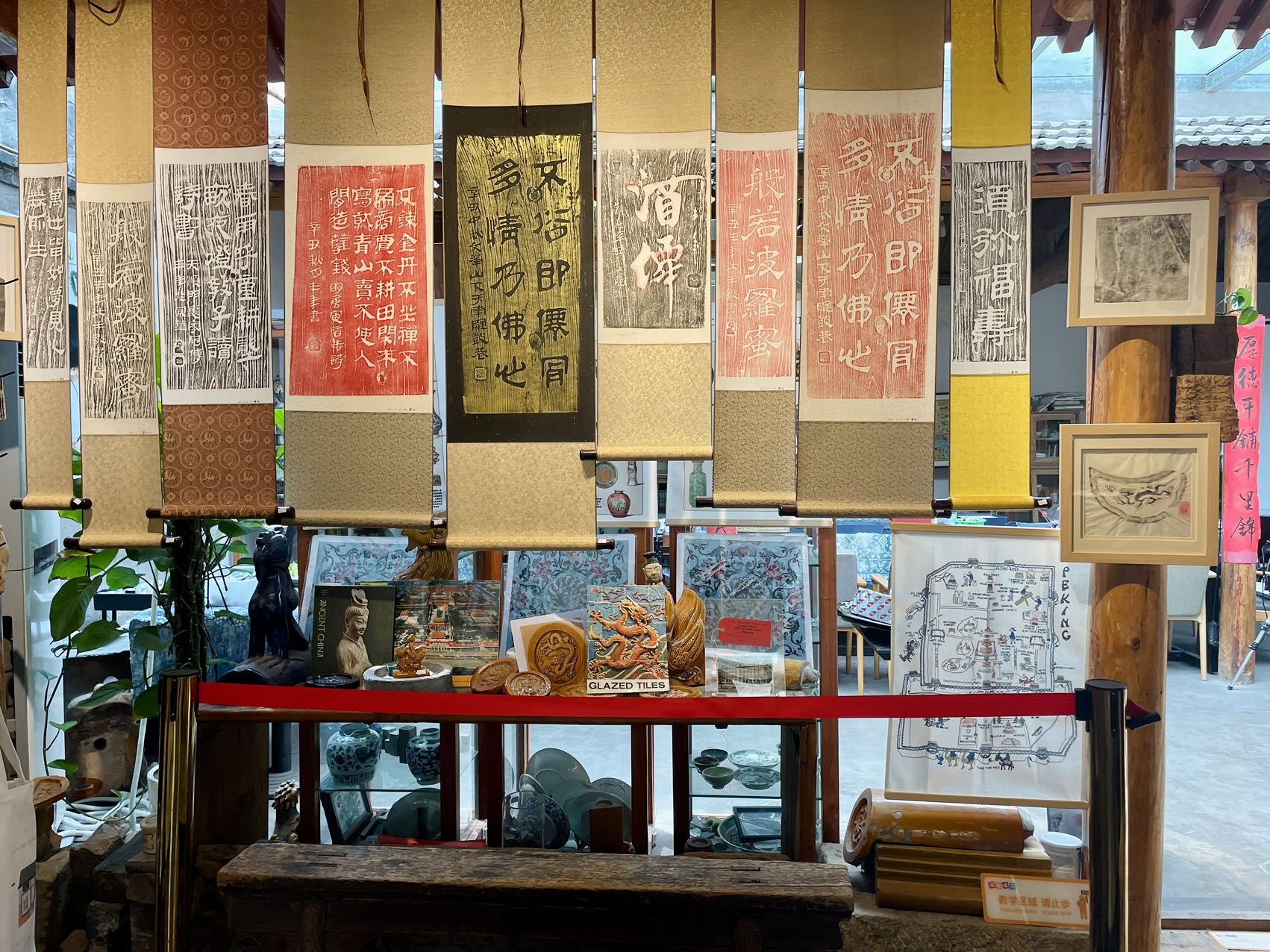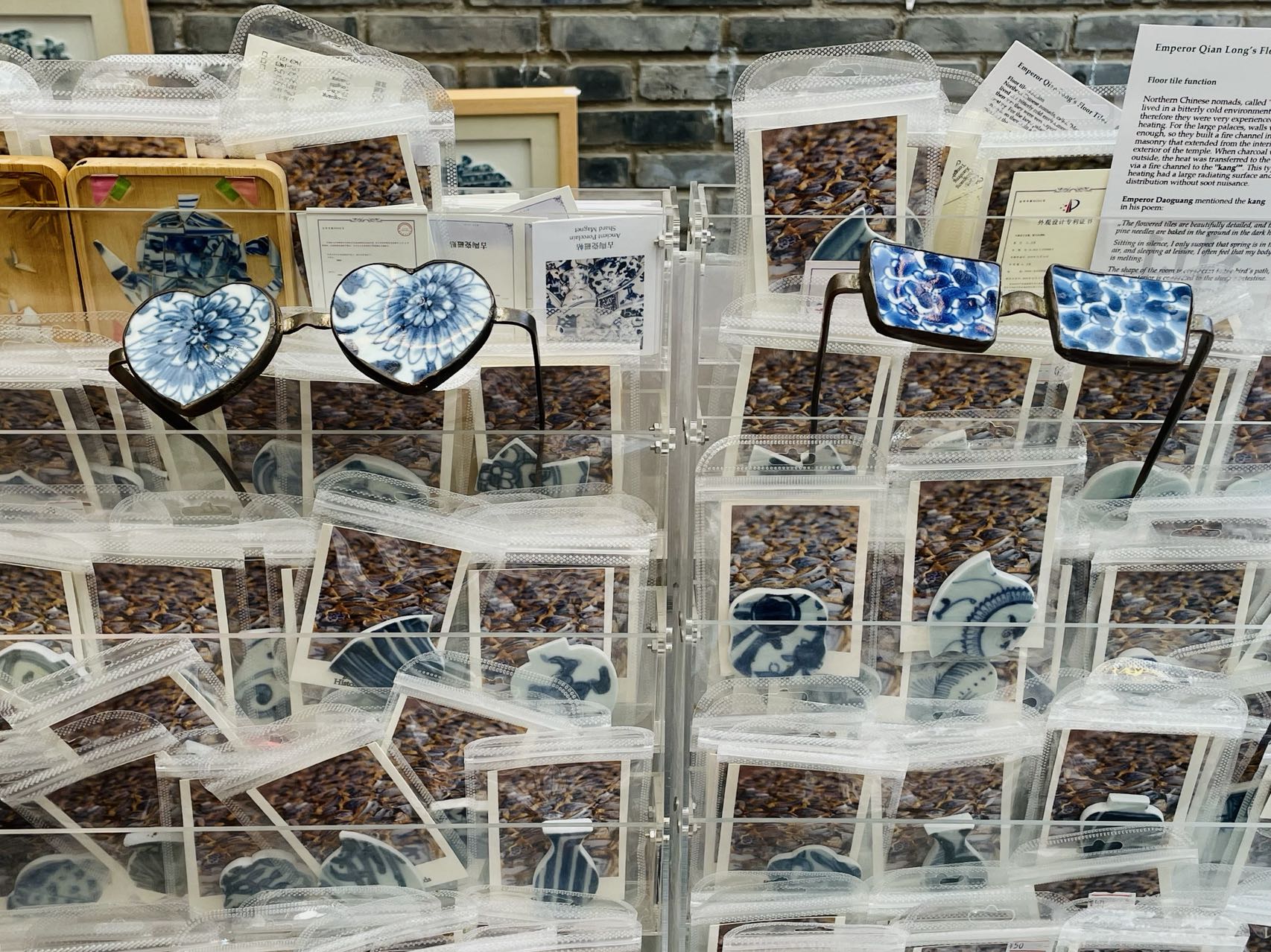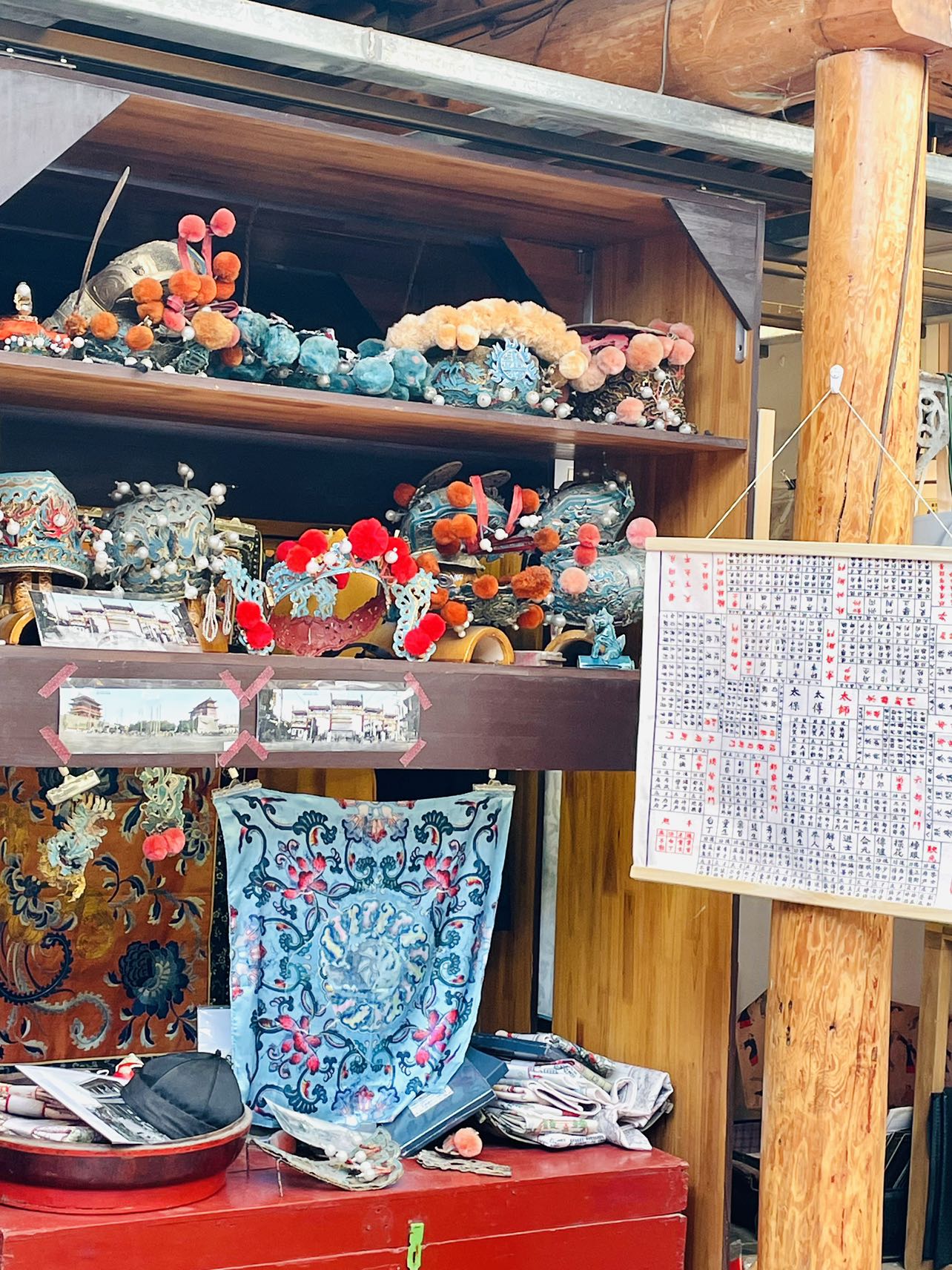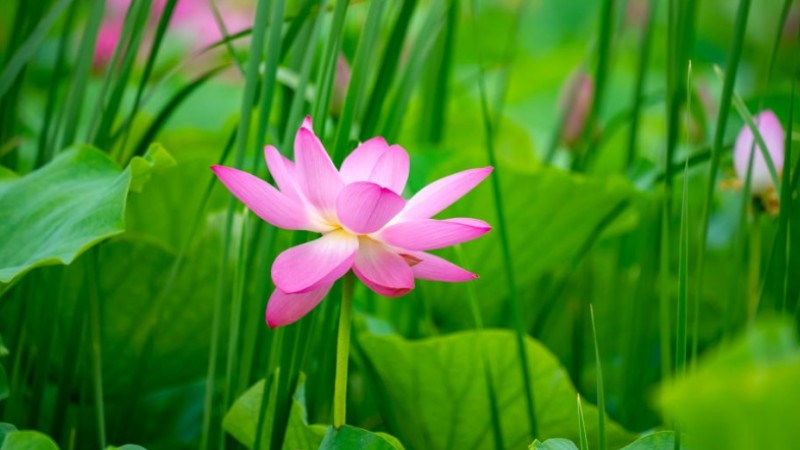Qiankun in an alley: weaving East and West in Hutong's cultural tapestry

This photo taken on June 25, 2023 shows the collection of ancient Chinese calligraphy displayed at Qiankun Space. (People's Daily Online/ Wu Chaolan)
Nestled in the vibrant heart of downtown Beijing, a hidden shop waits to be discovered within narrow alleyways. Within its walls, a harmonious fusion of China's rich traditions and international creativity unfolds, inviting visitors to embark on a unique and boundary-transcending experience.
This captivating art boutique is aptly named Qiankun Space, derived from the Chinese phrase that depicts the concept of encompassing everything within its scope. True to its name, this hidden gem intricately weaves together vibrant threads of culture and creativity, capturing the very essence of cultural heritage while nurturing a lively international artistic dialogue.
Threads of times
As you step into Qiankun Space, you will be greeted by a tapestry of Chinese craftsmanship. From exquisite porcelain pieces to delicate calligraphy, the shop stands as a testament to the profound legacy of Chinese culture. Each piece tells a story, a thread that connects the present to a bygone era. The store's founder, Wang Jing, envisioned a space where the past could thrive alongside the present, and where the beauty of tradition could be cherished and passed down through generations.
Qiankun Space is located at No. 28, Yangmeizhuxie street, in the Dashilan subdistrict, Xicheng District of Beijing. The location for Qiankun Space was not chosen by chance. Situated in a 600-year-old hutong, which serves as a gateway to the past, the historical architecture and surroundings of the shop invite visitors to embark on a captivating journey through time.
"While the hutong has undergone transformations over the centuries, it has integrated enduring features and cultures elements from each era," said Wang. "The hutong serves as a living documentary, showcasing ancient Chinese culture and life in Beijing to both locals and tourists."
Wang's deep affection for traditional Chinese culture stems from her family's ancestral roots in Chinese craftsmanship. Inheriting her family's traditions, she has been involved in cultural artifact preservation since the 1980s, and is dedicated to restoring and reproducing ancient porcelain.
"When it comes to ancient artifacts, people often think only passionate collectors will be interested," said Wang. "We hope to transform elusive antiques into accessible merchandise, attracting wider audiences to understand and appreciate the cultures and history behind these artifacts."

Photo taken on June 25, 2023 shows the collection of creative and cultural products crafted from Chinese porcelain sold at Qiankun Space in Beijing. (People's Daily Online/ Wu Chaolan)
Unlike traditional art shop, Qiankun Space goes beyond being a mere repository of antiques. It is a sanctuary of knowledge, a place where the past is brought to life through creative cultural products and workshops. Visitors can acquire intricate souvenirs inspired by traditional Chinese culture, learn the art of Chinese embroidery via the exhibition, or take part in porcelain restoration. Wang firmly believes that appreciating the beauty of traditional arts and understanding their context and craftsmanship are crucial for their preservation.
"We have noticed that our customers aren't satisfied with just buying our products, but also want to delve into the knowledge and culture behind them," said Wang. "We hope this space can be multidimensional where people gather together through cultural and creative products, exhibitions or activities to explore Chinese craftsmanship and the rich culture and history of the city."
The passage of time has breathed new life into Wang's family tradition, bestowing it with an enriched meaning that goes beyond mere preservation. It now represents the vibrant legacy of traditional art and the ongoing continuity of our culture. "We are compelled not only to protect but also to promote these treasures in the modern era," said Wang.
Kaleidoscope of cultural inclusivity
Within the confines of this intimate shop, the vibrant mosaic of cultural inclusivity unfurls before visitors' eyes. It transcends the boundaries of traditional Chinese art and welcome the works of foreign artists with a connection to China.
Art enthusiasts can feast their eyes on the intriguing wood engravings from a Japanese artist showcasing various traditional Chinese techniques, scintillating cartoons from a Russian illustrator depicting the bustling daily lives of Chinese people, and artworks related to Chinese embroidery from a German designer. In these works, traditional Chinese elements coexist harmoniously with contemporary pieces that showcase distinctive perspectives from artists originating from different corners of world. The vibrant colors, bold forms, and thought-provoking compositions contribute to the ever-evolving narrative of Qiankun Space and invites viewers to delve deeper into the rich fabric of Chinese culture.

Visitors from Algeria participate in a porcelain restoration workshop at Qiankun Space in Beijing. (Photo provided to People's Daily Online)
Wang believes civilizations thrive through dialogue and exchange. "One of the most effective approaches to promoting Chinese culture is through embracing cultural inclusiveness, inviting people from around the world to contribute to the tapestry of China by painting their own unique interpretations of Chinese society, cultures and history," said Wang.
Artists who immersed themselves in the intricacies of Chinese history, traditions, and philosophies draw inspiration from its rich cultural heritage. In return, their works actively promote and diversify Chinese culture, enriching artistic expressions in the realm of Chinese art.
According to Wang, the collection of artworks by foreign artists has become incredibly popular, captivating the interest of both Chinese locals and foreigners alike. One particularly beloved item among Chinese stamp enthusiasts is the personalized panda stamps created by Japanese artist Yoshiko. These stamps creatively document major events in China, offering a refreshing reinterpretation of the beloved animal and significant moments in the country's history. At the same time, foreigners are expressing great enthusiasm for a cartoon book illustrated by Russian artist Liuba. This book provides valuable tips for foreigners exploring Beijing, allowing them to easily empathize and connect with the perspectives of individuals from a similar cultural background who have shared their experiences of living in China.
"It seems that every visitor can relate to these works to some extent," Wang remarked. "Behind these pieces of art lies a profound appreciation and reverence for Chinese culture from the foreign artists."
Artistic expressions is a universal language of understanding and connection. The cross-cultural creations in the shop have already become a conduit for cultural exchange, encouraging dialogue, stimulating others interests in Chinese culture and fostering mutual respect among individuals from different corners of the globe.

Children engage in traditional rubbing crafts at QianKun Space in Beijing. The creation of rubbings from tablet inscriptions is a craft with a history spanning over 1,000 years in China, invented as a method of document duplication before the advent of printing. (Photo provided to People's Daily Online)
Qiankun Space is constantly bustling with enthralled patrons eagerly seeking out the works of their favorite artists. Even aimless city wanderers can quickly find themselves captivated by the mesmerizing artifacts within the store. Within this enchanting space, conversations thrive, diverse artistic expressions intermingle, and mutual understanding flourishes. This harmonious fusion and exchange have transformed the shop into an international cultural crossroad, expanding the horizons of artistic dialogue and warmly welcoming visitors from diverse backgrounds to actively engage with Chinese culture.
"Cultures know no boundaries," said Wang. "Everyone should be encompassed in a journey of exploration of Chinese culture."

Photo taken on June 25, 2023 shows the collection of traditional headwear of ancient Chinese displayed at Qiankun Space in Beijing. (People's Daily Online/ Wu Chaolan)
Photos
Related Stories
- Chinese vice president addresses civilization and sinology forum
- Across China: Fusing tradition and innovation in Dragon Boat Festival
- Cultural and Natural Heritage Day marked across China
- In pics: 19th China Int'l Cultural Industries Fair in Shenzhen
- The naughty boy who became a skilled cultural relic restorer
- Six exhibition halls set up at 19th ICIF in Shenzhen
Copyright © 2023 People's Daily Online. All Rights Reserved.









